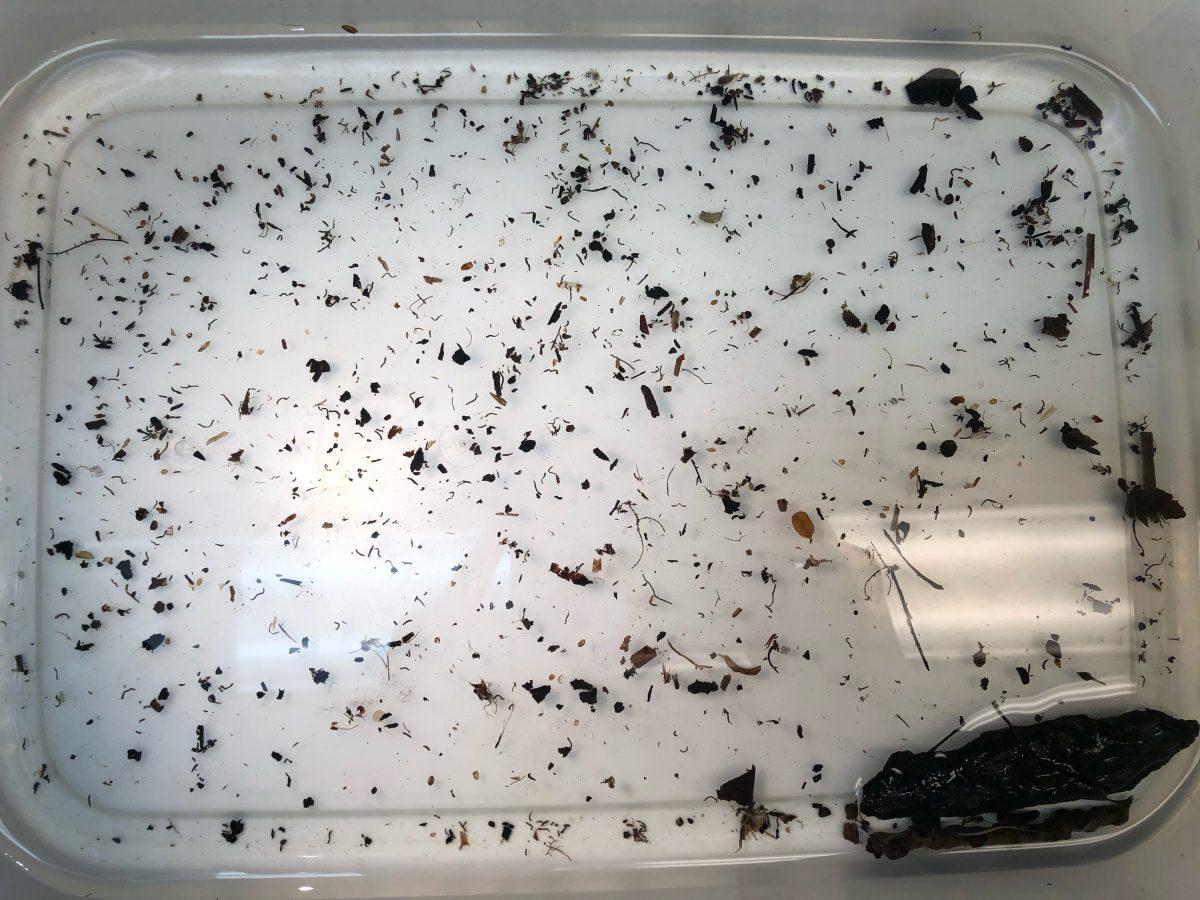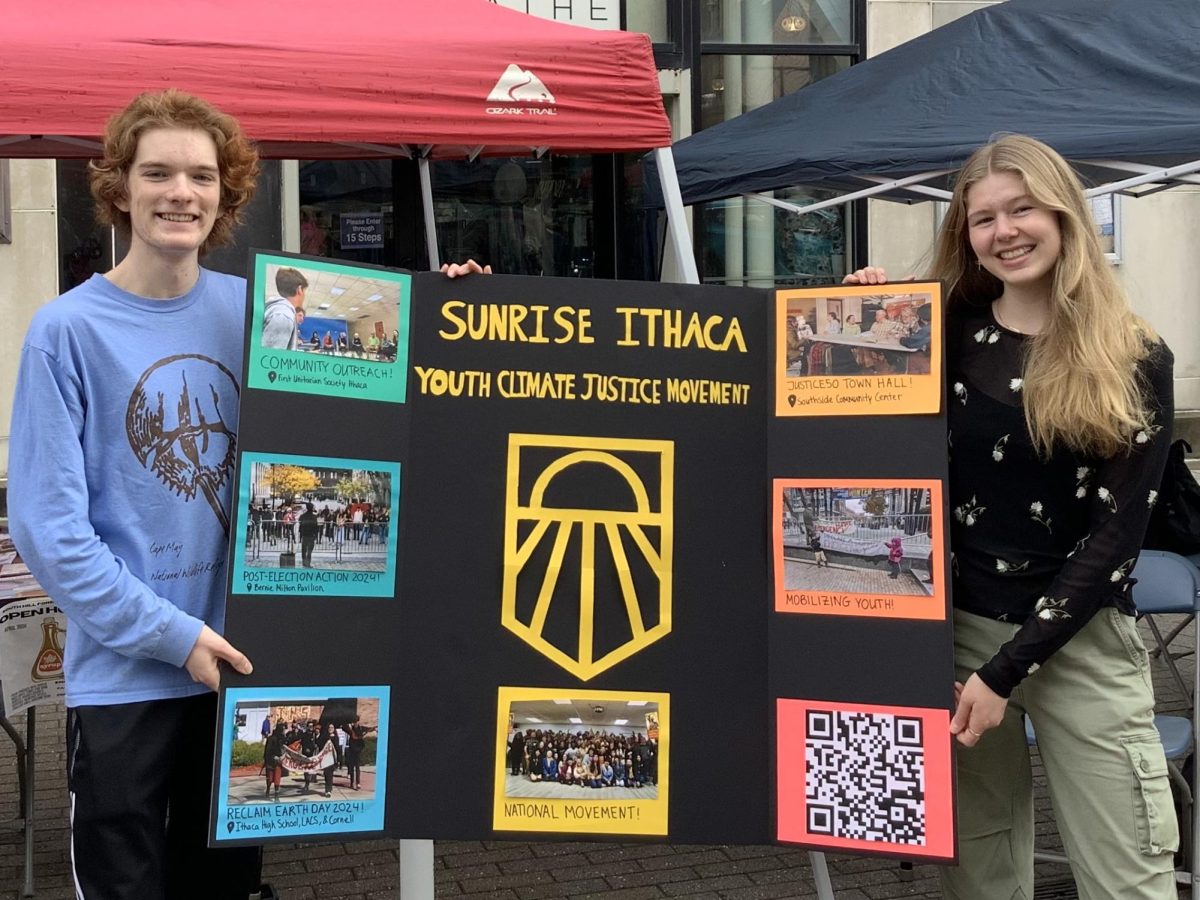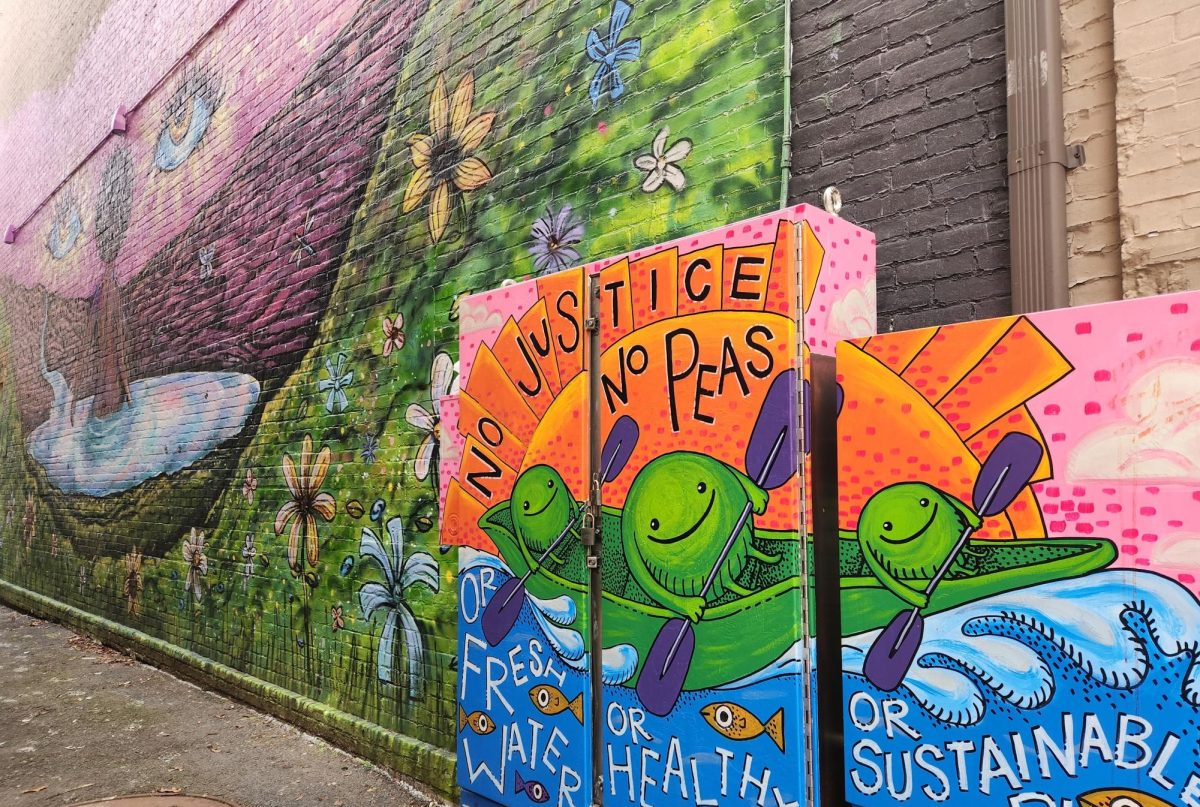Adriana Hirtler takes a turkey baster and sucks up the last dredges of sediment from a stream sample, then squirts it into a small plastic tray. Forceps in hand, she and a few other folks crowded in the closet-sized lab dig through their samples, on the hunt for little water creatures that are usually found in the bottom of water bodies, known as benthic macroinvertebrates, or BMI.
Monitoring BMI is vital for the understanding of stream and creek health — stoneflies, for example, are much more sensitive to pollution than other bugs, like damselflies or midges. A sample with very few stoneflies and a lot of midges may mean that something is wrong.
“They’re great indicators of overall water quality,” Hirtler said.
Considering the importance of sorting through samples and counting species, it’s interesting to note that none of the people gathered at the Community Science Institute this Thursday evening is a career scientist. Instead, they’re residents of the Ithaca community that want to help contribute to a thorough understanding of their local waterways — and are compiling a database of crucial information.

The Community Science Institute, also known as CSI, was founded in Ithaca in 2002. CSI operates as a hybrid of both a non-profit and commercial lab — it will test water samples for local municipal purposes, but the main goal is to partner with community members and monitor local surface water.
Hirtler started as a volunteer at CSI, but later joined the staff as the BMI Program Coordinator. She said that the work being done is important for a number of reasons, but mainly because it helps fill in the gaps in data collected by government agencies.
“The national government, the state government look at things like water quality, but they’re not able to look everywhere with the amount of detail you’d want to safeguard your local water resources,” Hirtler said. “Our volunteers are generating data that can be used by resource managers to make good decisions.”

The BMI program is not the only volunteer opportunity that CSI offers. There’s also the synoptic sampling partnerships, a monitoring program that seeks to set baseline water quality parameters, and more recently, a program that surveys the presence of cyanobacteria and Harmful Algae Blooms (HABS) in Cayuga Lake.
Considering the vast array of programs and monitoring sites that CSI oversees, it may be a shock to find out that it’s only staffed by six people. Instead, CSI has a network of nearly 400 volunteers that help sample water in both the Cayuga Watershed and parts of the Susquehanna watershed. Because of the sheer amount of volunteers, CSI is able to monitor a wider area and for a longer period of time, according to Nathaniel Launer, outreach coordinator for the Community Science Institute. And, because local people are helping compile this data, it can often lead to a sense of connection with the local environment.
“It kind of fosters stewardship and caring for the environment around you,” Launer said, “and being aware of what the conditions and issues that the environment around you is facing.”
The sampling done by volunteers is then studied by CSI’s analysts. The data from that is then entered into a free, public-access database that CSI has been putting together for over ten years — all for people to consult so they can make smarter water choices.
Noah Mark, a chemical and microbiological analyst at CSI, said that there seems to be a lot of barriers between academic science and the concerns of the general public, and CSI is a way to bridge those barriers.
“We’re trying to shape science in a way where the two kind of match and overlap,” Mark said, “and the science doesn’t go off into these esoteric areas where only experts understand what’s going on.”







